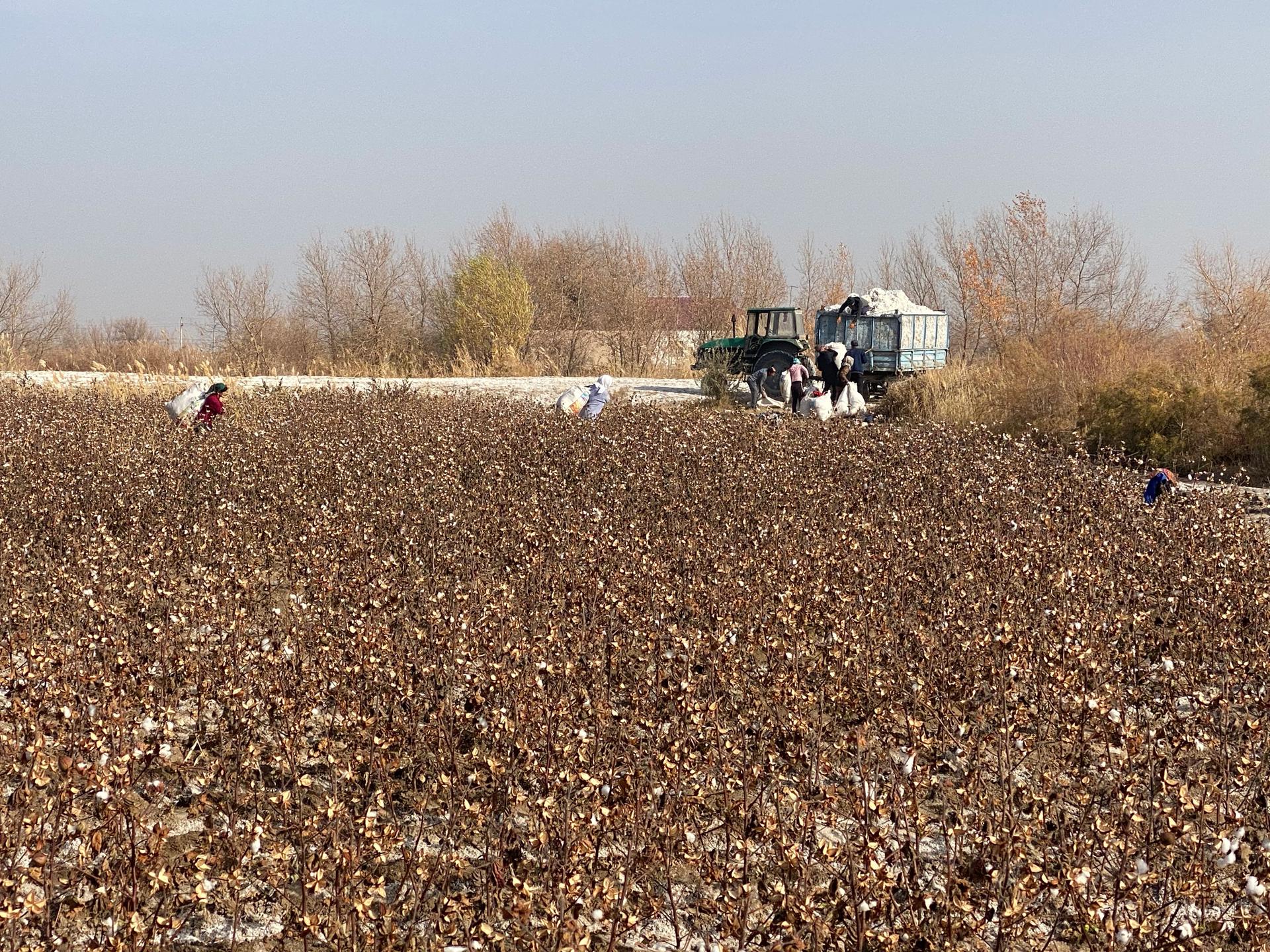‘Justice doesn’t exist here’: Uzbek farmers and cotton workers say abuse, exploitation continues despite reforms
In a large field in western Uzbekistan, during one of the last warm days of autumn, a group of women plucked big clumps of cotton off tall stalks.
The workers placed the cotton on large cloth sheets, which then got bundled and dragged toward a large truck to be weighed.
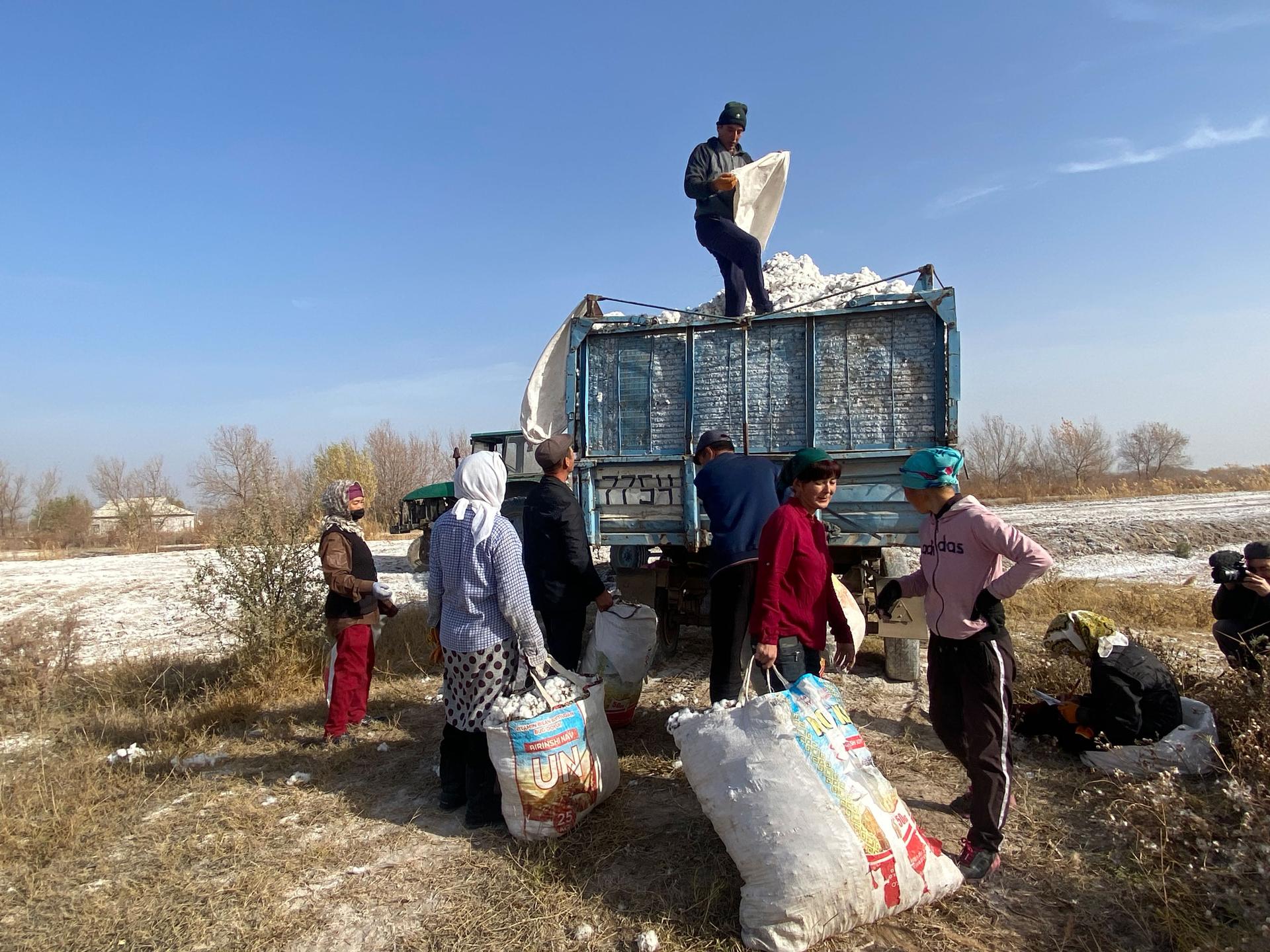
Uzbekistan is one of the world’s largest cotton producers.
Each year, from the end of summer until as late as December, millions of Uzbeks pick cotton in the country of 35 million people. The industry represents a vital part of the Uzbek economy, but it was built on forced labor.
Up until about 10 years ago, Uzbekistan’s government made it mandatory for many adults, and children as young as 9, to pick cotton. Instead of going to school, many kids worked in the fields, sometimes far away from their families.
“It was very difficult as a young girl to be far away from home for a long period — we cried a lot,” said Gulnoz Mamarasulova, who was first sent away to pick cotton when she was 11 years old.
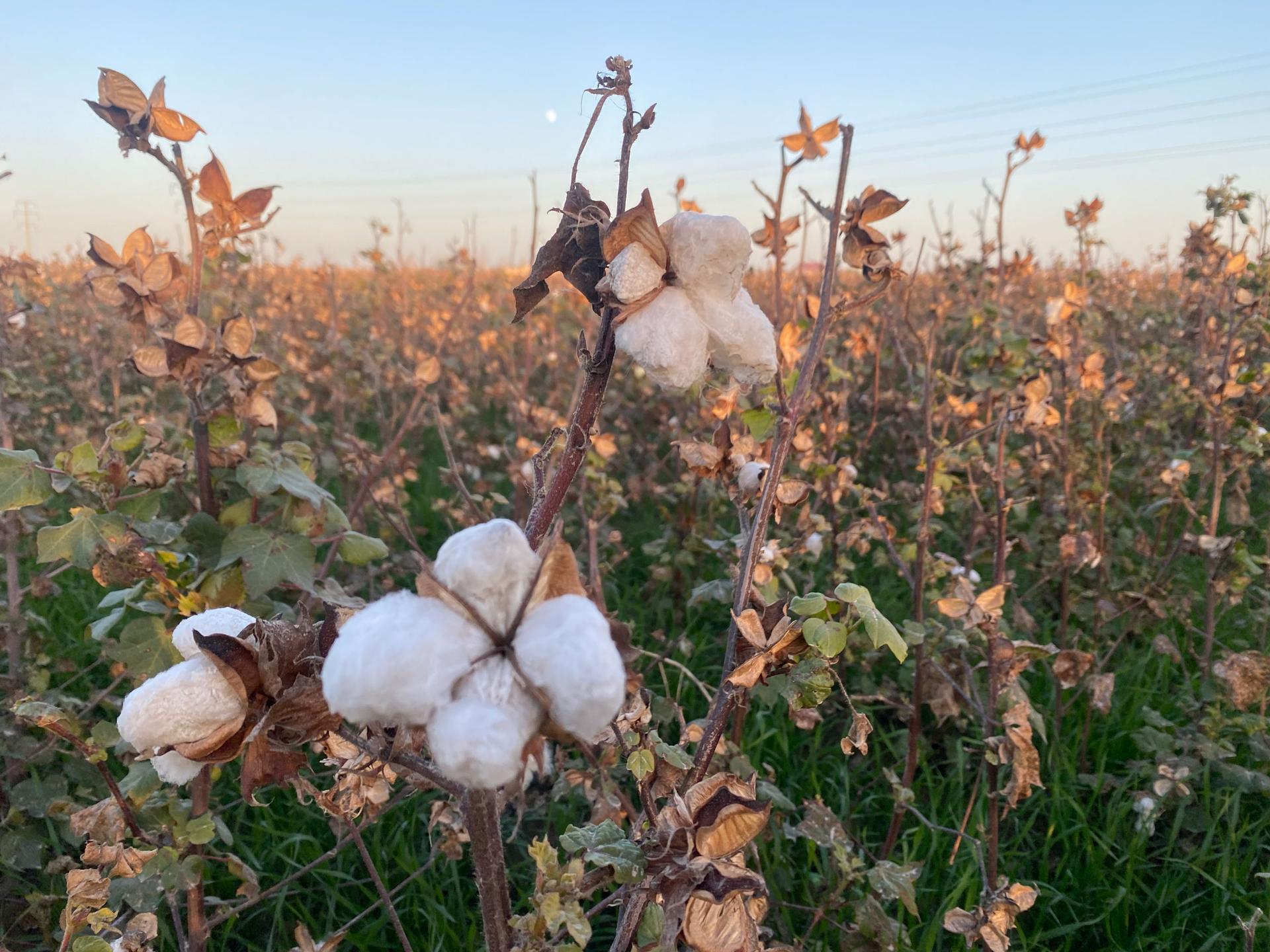
This form of child labor during the cotton harvest dates back to the Soviet Union.
But over the last decade, Uzbekistan succeeded in abolishing forced labor of both children and adults after companies like Levi’s, H&M, and Adidas started to boycott Uzbek cotton in response to the labor issues.
As part of the reforms, the government handed over control of the cotton industry to private businesses. The Uzbek authorities set up a hotline for workers who encounter problems in the workplace and wages for cotton pickers increased to attract workers.
The reforms worked.
In 2022, the International Labor Organization declared that Uzbekistan was “free from systemic child and forced labor.” But human rights defenders and those involved with Uzbekistan’s cotton industry say there is still much work to be done.
“Picking cotton pays better-than-average wages, but it’s still honestly not great pay,” one worker said during last year’s harvest as she sat on a blanket with other workers sipping black tea.
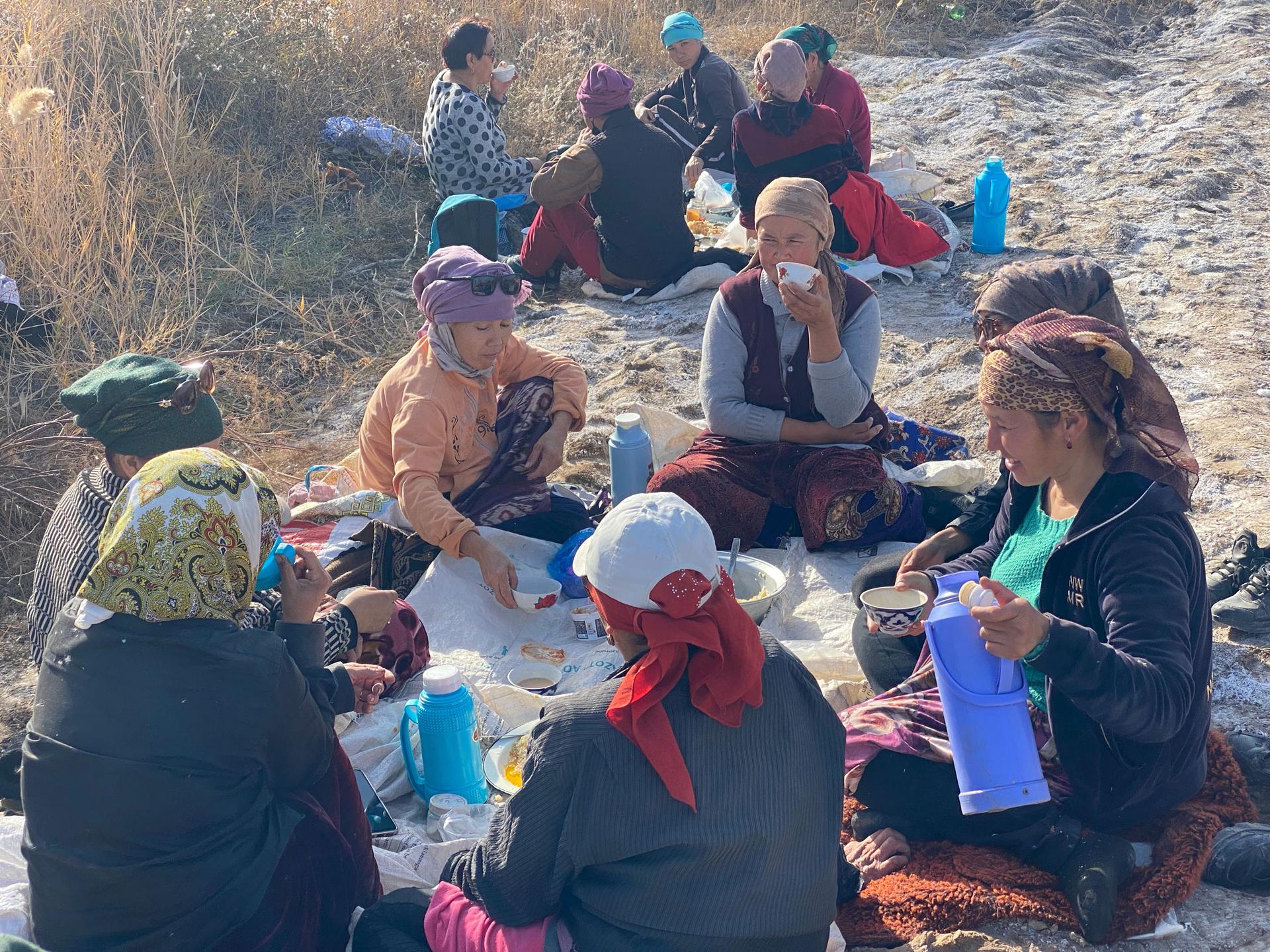
The worker didn’t want to give her name because she feared retaliation from the bosses or the authorities for not speaking positively about the job.
Advocates say that ever since the government handed the industry over to private companies, the farmers who produce cotton have encountered new problems.
One group of farmers near the regional capital Nukus said that one of the new companies forced them to sign documents handing over their farmland to the company.
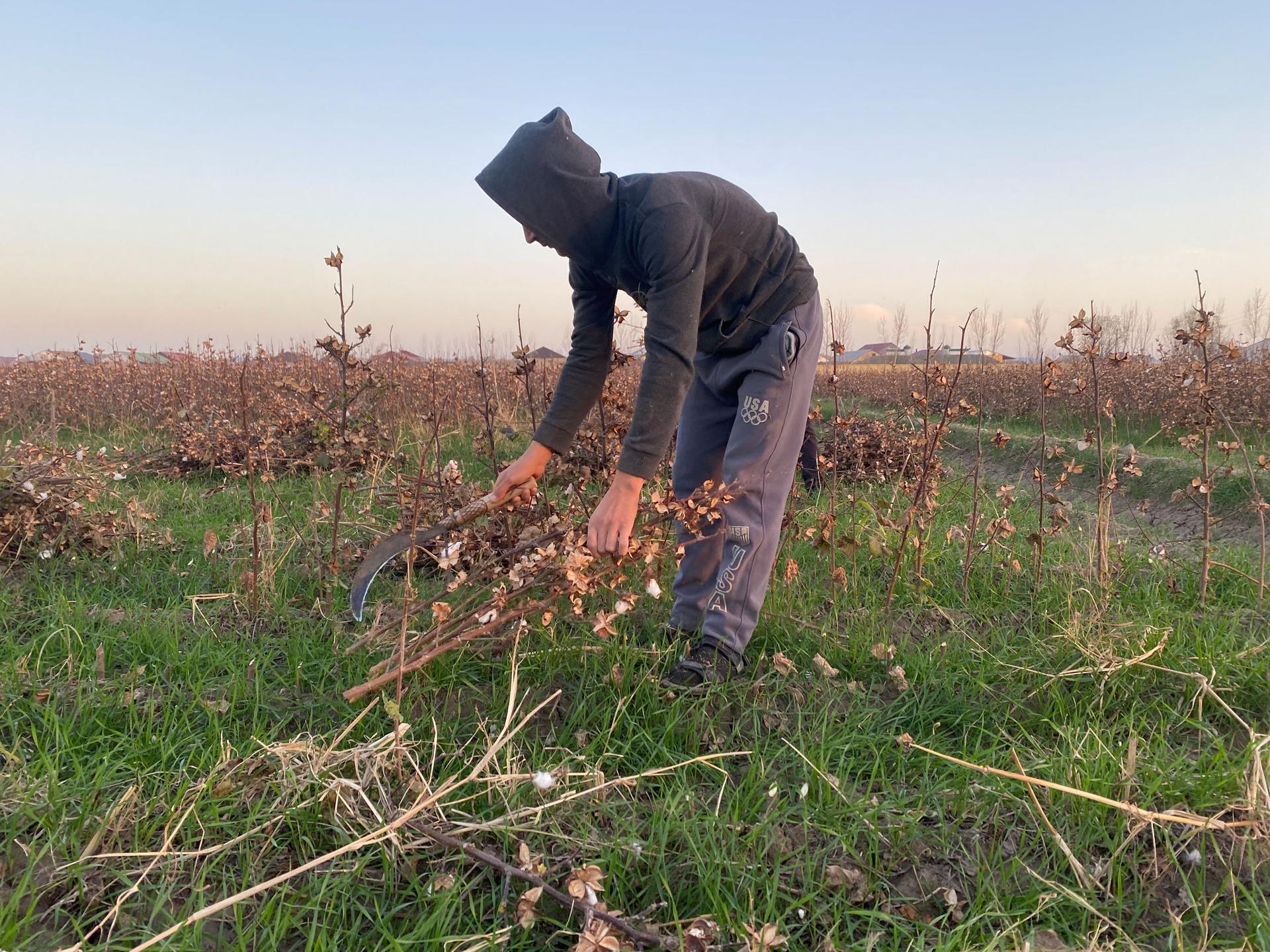
One woman who refused said a group of men beat up her son to pressure the family.
“Justice doesn’t exist here,” said the woman, who asked not to use her name out of fear her family might be attacked again.
After she took legal action, she was able to reclaim her land, but many other farmers haven’t been so lucky.
Labor advocates said the problems facing farmers are exacerbated by the fact that the Uzbek government exercises great control over farmers.
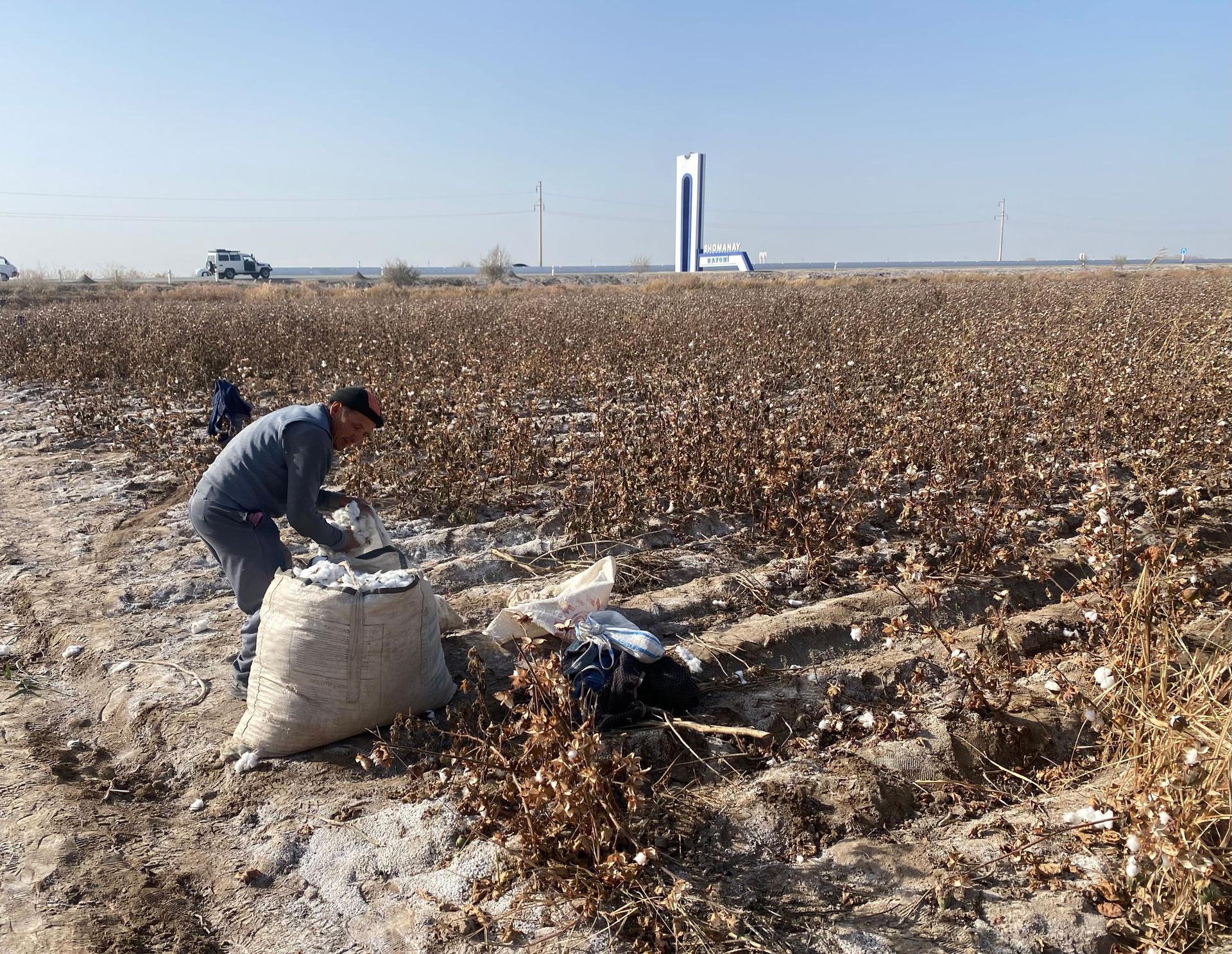
Uzbek human rights defender Umida Niyazova, who monitors the harvest, said many farmers are still required by the state to grow cotton.
“Farmers have no right to choose what crop to produce. Even if cotton is not profitable, they still must produce cotton,” Niyazova said.
Last month, the government shuttered a new organization that worked to improve the conditions and rights of cotton farmers.
Uzbek officials contacted by The World with a request to comment did not reply before this story was published.
The Uzbek government tightly controls civil society and free speech — even bloggers are jailed here. But the country needs foreign companies to buy its cotton, so there seems to be a bit more tolerance for this type of dissent.
At a gallery in the Uzbek capital, Tashkent, a recent exhibit highlighted the problems caused by the cotton industry. Uzbekistan produces so much cotton that some parts of the country are running out of water.
“The consequences [of cotton] are the same as after a nuclear blast,” said Timur Karpov, one of the curators, standing before a painting of a mushroom cloud made of cotton.
Many American companies still don’t buy Uzbek cotton, in part because US lawmakers passed legislation recently that requires the garment industry to abstain from buying cotton produced by forced labor in China. The law — and potential consumer backlash — are forcing brands to be more careful.
“Uzbekistan hasn’t developed real systems for accountability, so it’s really hard for brands to have the kind of assurances that they need that they’re not going to get into trouble,” said Allison Gill, a lawyer working to reform Uzbekistan’s cotton industry.
As for now, Uzbekistan sells most of the cotton to countries that do not prioritize human rights, like China and Russia.
This speaks to the power that US regulators and consumers have when they demand more accountability from companies.
The story you just read is accessible and free to all because thousands of listeners and readers contribute to our nonprofit newsroom. We go deep to bring you the human-centered international reporting that you know you can trust. To do this work and to do it well, we rely on the support of our listeners. If you appreciated our coverage this year, if there was a story that made you pause or a song that moved you, would you consider making a gift to sustain our work through 2024 and beyond?
